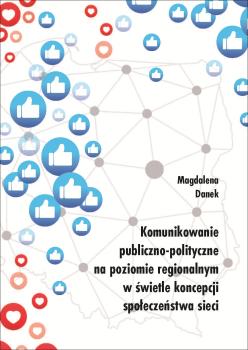Komunikowanie publiczno-polityczne na poziomie regionalnym w świetle koncepcji społeczeństwa sieci
Streszczenie
Czy w przestrzeni mediów społecznościowych – zdominowanej przez dezinformację, hejt i autopromocję – jest jeszcze miejsce na autentyczny dialog między samorządami a obywatelami?
Książka pokazuje, jak polskie samorządy województw komunikują się z mieszkańcami w sieci. Na podstawie badań ankietowych, wywiadów i analizy treści autor(ka) przygląda się, czy media społecznościowe służą realnemu zaangażowaniu obywateli, czy tylko kreowaniu wizerunku władzy. Całość osadzona jest w koncepcji społeczeństwa sieci Manuela Castellsa. Książka kierowana jest zwłaszcza do badaczy nauk politycznych i medioznawstwa, ale także dla samorządowców, przedstawicieli organizacji pozarządowych, lokalnych aktywistów i wszystkich, którym zależy na lepszym funkcjonowaniu demokracji na poziomie regionalnym i lokalnym. To nie tylko publikacja naukowa, ale też praktyczny przewodnik dla tych, którzy chcą usprawnić komunikację na linii władza–obywatel — zwłaszcza na poziomie lokalnym i regionalnym.
Rozdziały
-
SPIS TREŚCI
-
Wprowadzenie .......... 9
-
1. Media w dobie rozwoju nowych technologii .......... 13
-
2. Społeczny i polityczny wymiar przemian technicznych .......... 55
-
3. Demokracja i komunikowanie publiczno-polityczne w dobie nowych mediów .......... 85
-
4. Metodologia badań .......... 141
-
5. Komunikowanie publiczno-polityczne na poziomie regionalnym w świetle koncepcji społeczeństwa sieci. Wyniki badań .......... 167
-
6. Podsumowanie zrealizowanych badań, wnioski i rekomendacje .......... 269
Downloads
Bibliografia





